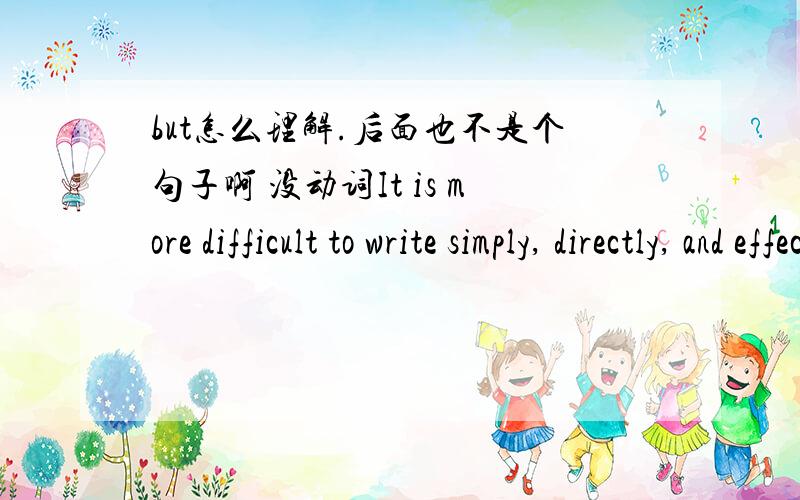but怎么理解.后面也不是个句子啊 没动词It is more difficult to write simply, directly, and effectively than to employ flowery but vague expressions that only obscure one’s meaning.than后面是不是省了什么 怎么直接跟to了
来源:学生作业帮助网 编辑:作业帮 时间:2024/11/29 05:40:43

but怎么理解.后面也不是个句子啊 没动词It is more difficult to write simply, directly, and effectively than to employ flowery but vague expressions that only obscure one’s meaning.than后面是不是省了什么 怎么直接跟to了
but怎么理解.后面也不是个句子啊 没动词
It is more difficult to write simply, directly, and effectively than to employ flowery but vague expressions that only obscure one’s meaning.
than后面是不是省了什么 怎么直接跟to了?
but怎么理解.后面也不是个句子啊 没动词It is more difficult to write simply, directly, and effectively than to employ flowery but vague expressions that only obscure one’s meaning.than后面是不是省了什么 怎么直接跟to了
than在这里是介词,不定式 to employ flowery but vague expressions that only obscure one’s meaning.是它的宾语,表示该不定式和前面的不定式to write simply,directly,and effectively这两者之间作比较.其中的but是连词“但是”,表示转折意义;就像you and I一样,连词后面可以不是句子.翻译为:
比起使用只会使一个人的意图晦涩难懂的那些词藻华丽却含糊不清的表达,简明、直接并有效地写作是更加困难的.